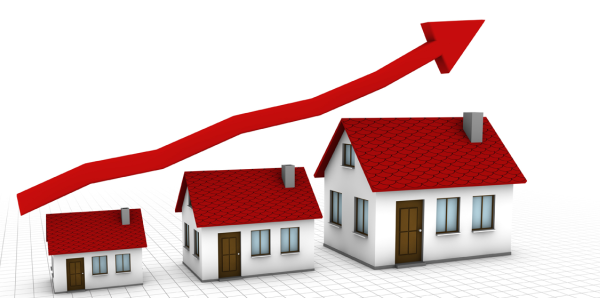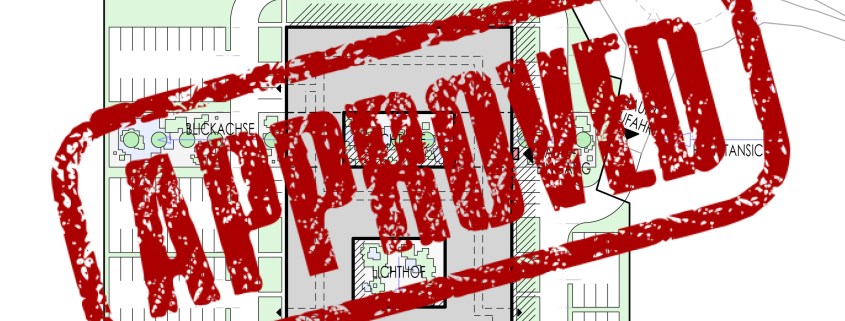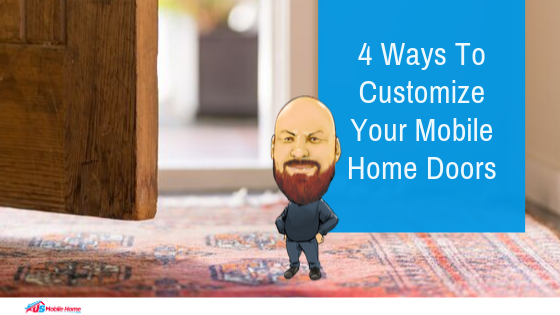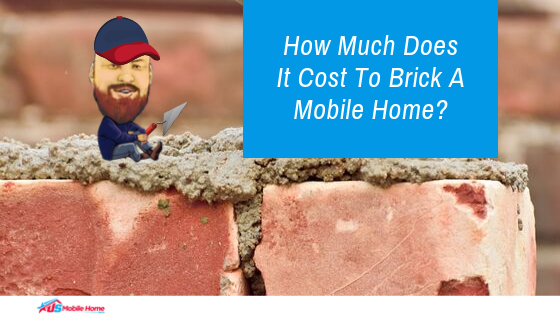Simplify it...with a Price Comparison Report
Mobile Home Values: Wholesale vs. Retail
Selling Your Mobile Home & How to Get the Best Price
Selling a mobile home might seem easier than selling a house but with little information available and almost no data transparency for the market, it can be extremely difficult for owners to find mobile home values quickly, accurately and easily. Despite that, thousands of mobile home owners must either guess the value of their home or pay high valuation fees to get a better estimate of the final sale price.
It’s important to note, mobile home pricing isn’t standardized and even new models can be priced differently depending on the sales lot. And, while you can do research to find list values for similar homes to your own, this takes time and effort to search for valuable data, not to mention the market changes radically from state to state.
This means that as a mobile home owner, you must be able to research and make the best decision for your needs in order to walk away with the highest profit from the sale. Your primary options are to sell via the traditional retail market, which functions similarly to selling a home, or to sell through the wholesale market, where a broker will directly purchase your home for a wholesale price. Each opportunity has its own pros and cons and it is important for you to understand the distinctions and opportunities of each to make a good decision.
Because selling is often more cost effective than choosing to move your mobile home, it is crucial that you be able to earn the maximum profit when you sell your home. This guide will help you to understand different valuation methods and markets so that you can make the right choice for your home.
The Value of Your Mobile Home

Mobile homes sell for various prices which are affected by the mobile home itself, the lot, the condition, the park, the community, original manufacturing standards, the size, category, and even whether you’re including furniture in the sale. Because there are so many variables, most online quotes are an estimate and won’t reflect the full actual cost of sale. However, you can check the value to decide how much you can sell it for using one of two methods; market value and appraisal.
Market Analysis For Mobile Home Values
We provide a retail market analysis for only $24 and we’ll give you the wholesale as a bonus, for free. This analysis is generated based on our extensive database of mobile homes for sale around the country. We use this information to compare the year, condition, size, and demand in the area to create a comprehensive value range that is similar to a bluebook value, but not as model specific. All Market Analysis’ are:
- Lifetime – You’ll never need to purchase another report
- Live data – We update your report in live time, as new homes go on the market
- Printable – Print a PDF of your report for flyers or open houses
- Sharable via web link – Post the link with other web listings you have so buyers can see your report
- Visualized via graphics – Easy to understand bar graphs to visualize the data
A Market Analysis is the way you support your asking price when negotiating a sale with potential buyers.
How do they work?
We receive information on thousands of homes for sale each year from all across the country. We’ll collect basic information on your home and match it up with the many homes in our database, zeroing in on only those that are similar to yours, and report back to you what the asking prices to these homes are. This gives you the necessary information needed to set your asking price with confidence. In the end, it doesn’t matter what someone (or some company) tells you what your home is worth. In the end, it’s only worth what someone is willing to pay for it, and making sure your home isn’t over or under priced, in comparison with other homes on the market, will keep you in the running with buyers in your area!
Appraisal Valuation
A full appraisal will give you a much better idea of what your mobile home is worth on the retail market, but it will not be cheap. Most appraisals cost between $250 and $400 and include a full inspection where the appraiser will examine the square footage of the home, the condition, the park, the heating and cooling, and details about the park, and other factors to create a detailed report that reflects repairs, issues, and a general overview of the retail value. Real-property mobile homes are appraised using the Uniform Residential Appraisal Report, Form 1004C. However, if you rent a lot at a mobile home park, there is no standardized form for appraisal. There is always things you can do to protect yourself from low ball appraisals.
No matter what your market value or appraisal, you should be cautious about setting your asking rate. The actual sales value for mobile homes can vary a great deal and can range from as little as a few hundred for very old homes that cost owners too much in monthly rental fees to over $250,000 for triple wide or larger homes on owned property. (You have to take these factors into account when comparing your home with another. Our reports simplify this for you by only comparing your home to homes similar to yours. We match your home up with similar homes, in your market, so you can be confident that you’re not selling yourself short.)
Final sales prices typically range between $5,000 and $15,000, the exact rate will change a great deal depending on your specific home, your local market, the park, and other details. Used double and triple wide homes can sell for significantly more, as they hold their value better, but are often more difficult to sell because the asking price is higher.
However, no matter what your situation, your final price will ultimately depend on your market and how you choose to sell your home. One of your most important decisions will be whether to sell retail and list the home yourself or sell directly to a broker for a wholesale price, and each option has its own pros and cons for costs.
Retail Mobile Home Values
Selling a mobile home yourself means either connecting with a real estate agent or listing the home yourself, marketing, showing the home, handling paperwork, getting permission from the park, and if you’re moving away before the sale, continuing to pay rent and fees for the home. Just like with selling a house, you set a price, accept bids from interested buyers, and eventually make a deal to sell the mobile home. You keep all the profit, and you get the maximum sale price for the home.
Just like with selling a house, you set a price, accept bids from interested buyers, and eventually make a deal to sell the mobile home. You keep all the profit, and you get the maximum sale price for the home.
However, while this option is outwardly advantageous, retail sale has a number of disadvantages that you should be aware of before you choose to sell your mobile home in this way.
Market Values
Most people choose to do a significant amount of comparison research online to see what they can sell their mobile home for. Chances are, you’ve already looked around to see what mobile homes are selling for and may even have an idea of what your home may be worth.
Unfortunately, this kind of sales comparison won’t always work. First, you have to factor in homes that are in similar condition, with similar upgrades and size. Typically, unless the home is in the same mobile home park, from the same year, with the same upgrades or modifications, a single online listing won’t accurately reflect the sales value of your home. You need to compare with several homes in order to get an average asking price range. The more homes you can compare the better.
You can use these listings to get a ballpark figure of the asking price you may want to try when listing your home for sale. It’s also important to remember that your manufactured home may not sell for the asking price you set. However, you’ll have a much better chance if your price range is competitive.
Market Demand – If you’re in an area with a high volume of mobile homes on the market, you have a much smaller chance of getting your asking price if it’s higher than others in the area. In most areas in the United States, the number of used mobile homes outstrips the market, meaning that there are more sellers than buyers, which also means that you might have to reduce your price a great deal to make a sale. On the other hand, if there are only a few other sellers, your chances of getting your asking price are much higher. Performing the necessary due diligence will limit the chances of under pricing your home.
The primary benefit of using the retail market is that you can potentially earn more money by getting the full retail price. However, it is not guaranteed, and you have to consider the factors that affect the pricing to see your actual profits.
- Age: Older homes lose value, are more difficult to finance, and typically sell for much less.
- Make and Model – Some brands are more desirable than others. If you are going through a real estate agent, your mobile home will be assigned to First Tier or Second Tier for pricing based on the make, model, and manufacturer.
- Size – The size, number of bathrooms, bedrooms, etc., will affect the sales price.
- Condition – The better the interior and exterior condition of your home, the higher the value.
- Improvements – Have you factored any improvements or upgrades into the cost.
- Problems – Are there any issues or problems? Old appliances, leaks, loose boards, and damage all lower the sale price of the home.
- Park Rental – The park rental fee will affect your ability to sell. Check with the park manager to see if there will be a fee increase for the new owner, and factor that into your sales price.
- Community – A quality community will raise the asking price for your home, so be sure to factor in amenities and services offered by the park.
- Time to Sell – Your mobile home may take anywhere from a few months to over a year to sell. Most buyers will consider all of their options, including regular homes, before purchasing a mobile home, and you will likely have to sit through several house showings, several inspections, and multiple price negotiations before making a sale. Most interested buyers will hire an inspector to review the home and use that inspection to place their bid. In most cases, it is very difficult to obtain financing for a used manufactured home, especially on a park lot, so most banks won’t help your buyers to make the purchase. This can considerably slow down your time to sale, simply because buyers must either take out a high-interest loan or come up with the capital in cash in advance. This difficulty stems from the fact that mobile homes are considered property and typically registered as motor vehicles, even though most of them are never moved.
- Costs – There are numerous costs associated with selling your mobile home and you should factor them into your final decision. You can typically choose to either sell the home yourself, which usually takes longer unless you have a friend or family member who is willing to buy it, or use a real estate agent, who will help you to prepare, photograph, and list your home to find buyers. Most realtors typically charge around 6% of the final sale value in fees. However, not all realtors are willing to work with mobile homes, so you may be forced to handle the sale on your own.
- Park Rental – If you are unable to live in the mobile home until the sale, you must factor direct park rental costs into your calculations. While you probably already know the rates you pay, the average park charges between $180 and $300 per month for the lot. This will add up significantly if you take a year or more to sell the home. You also have to factor in required repairs, any maintenance on the home during the period, whether or not you have to continue to pay for utilities, and any other demands (such as insurance) put on you by the park.
- Marketing – If you are selling the home yourself, you will have to pay for marketing out of pocket. While there are free and low-cost marketing resources, you should factor marketing in as a cost.
Getting Permission

The most difficult step to selling a mobile home in the retail market is getting park approval to complete the sale. Most parks will deny your request to sell if the buyer has poor credit or a criminal background or if your home needs repairs. Parks often have a checklist of “fixes” that must be completed before they will approve a homeowner’s sale.
You should also consider that many mobile home parks have their own homes and developed units for sale. This means that your sale may be directly competing with the interests of the park and the manager may actually steer potential buyers away from your mobile home and towards a vacant home that they are selling themselves. This can greatly increase your sales period, especially considering that selling yourself means finding someone who wants to live in your park and competing in a market that is usually tilted towards the buyer and not the seller. Because there are more mobile home sellers than buyers, the process can take a long time, even without competition.
After the sale, you will still owe realtor fees (if applicable), possible attorney fees (for the paperwork), any taxes, any money that you still owe on the home, the cost of title work, and any repair costs or standing dues against the home.
When should you use the retail market? If you are confident in your ability to sell your home quickly, have a newer model home in a quality park, and can get permission from your park manager, you may be able to make a profit. However, it is important that you take the time to review your costs to ensure that retail will earn you the most money.
Selling a Mobile Home Wholesale
Wholesale is the process of selling your mobile home to a broker who will move the home and then sell it to a buyer to be provided at a lot of their choice. This option is advantageous for a number of reasons and can be the better option for many mobile home owners. Like with retail, there are several considerations and drawbacks and you should take care to consider all of your options before you make a decision.
Wholesale allows you to sell quickly and without the hassle and additional costs of retail, but for a significantly lower price.
Market Values
Most wholesalers will inspect your home and then make an offer based on the same conditional factors you would include during pricing a home for the retail market. However, this bid is usually significantly lower because of several factors. Most wholesalers must move your mobile home off of the lot in order to purchase it and sell it elsewhere, meaning that they must take on high moving costs for transportation, permits, licenses, unhooking utilities, and prepare a new lot in another location. These costs can be high, and they are all directly subtracted from the offer that the wholesale broker will make to you.
Most wholesale buyers also don’t pay retail price, which means that the final value will be lower than the retail, even for the wholesaler. While the price you are quoted will vary depending on the moving costs associated with your home, it will be lower than retail value. However, you can greatly benefit if you are living in a less than ideal area, as brokers do not factor in the condition of the park, amenities, or the community, only the mobile home itself.
In Hurry to Sell?
One of the largest benefits of wholesale is that you can sell your mobile home very quickly, sometimes even on the same day you receive the offer. This can be very advantageous if you need funds quickly to handle other financial issues or to put a down payment on your new home in another location. In some cases, brokers will be willing to purchase your mobile home upfront and allow you to move out at an agreed-upon date, which gives you the time to use the money to put a downpayment on your new home. When looking for a accurate mobile home values estimation, speed quickly changes the value based on how long you are willing to wait.
Comparing The Sales Processes
Unlike with retail where you must market, show the home, and ask permission from the park, selling wholesale is fast and painless. The wholesaler will offer a rate and if you accept they will immediately close the deal. This sale will go through instantly and parks cannot stop the sale due to repairs needed and cannot deny the sale as the home will be moved off the lot. You also won’t need an attorney or park mediation, because it is a two-party sale between you and the broker. At times, parks will implement a First Right Of Refusal, where you are required to give the mobile home park the chance to match any purchase agreement you enter into. This is often misrepresented in order to make the homeowner believe they are not allowed to sell their home to a buyer who plans to move the home. If this is what you have been told, please contact us and we can help you navigate through the sale in a way that won’t get you into legal trouble.
Selling your mobile home directly to a broker allows you to make a sale quickly, avoid issues with the park, get money quickly, and move on with your life. While you will earn less money upfront, you won’t have to worry about additional fees, park issues, or waiting a year or more to sell your mobile home, and you might walk away with more profit. Direct sales are ideal if you can’t sell quickly, have high rental fees to consider, or need the money from the sale upfront to invest in a new home or opportunity.
Choosing Your Sales Process
Selling your mobile home means making key decisions regarding how, where, and how quickly you want to make the sale. If you want to make the most profit, you should sit down to consider your options, do the math, and make a decision that offers the most value to you. Because the average time to sale is 9-12 months and sometimes longer for a mobile home, you should calculate at least a year’s worth of park fees, any repairs that you might have to make, the cost of maintenance for the home over that period, advertising, marketing, and other details.
Hopefully, this helps equip you with the information needed for understanding the different markets assessing mobile home values. US Mobile Home Pros is committed to giving you the best resources so that you can make an informed decision.
We wish you all the best selling your mobile home.





